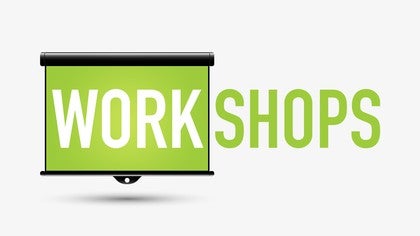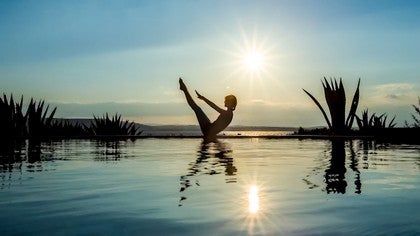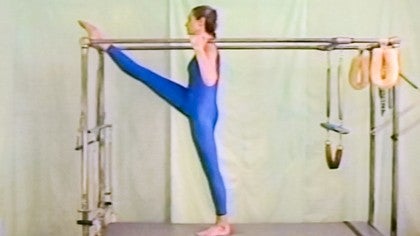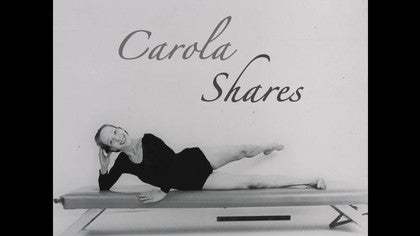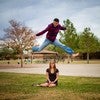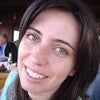Premium workshop
You can view a 2 minute preview. For details, scroll down below the video.
Description
Almost every lifestyle, sport, and activity has that one film that brings everyone together. Whether it’s to remind them why they love what they do, or to inspire new people to become a part of the community, that film provides an everlasting source of inspiration. That is what A Movement of Movement is. We are living in a historical movement, a phenomenon of human experience. Pilates has changed the world. The movement is about us, it’s about today, and it’s about exploring our full potential.
Featuring: Jennifer Kries, Mary Bowen, I.C. Rapoport, Amy Taylor Alpers, Rachel Taylor Segel, Siri Dharma Galliano, Jana Weber, Maya Christopherson, Eva Kauffman, Michele Dorsey, Mareile Paley, Liz Ann Kudrna, and many more.
Directed by Mark Pedri
Produced by Burning Torch Productions
About This Video
Transcript
Read Full Transcript
A Movement of Movement Trailer
(person inhales) Something keeps leading us sometimes to the point where say the person that didn't know that Pilates was something greater than an exercise, was something more than buns of steel and six pack abs, because it is something greater. The fulfillment of being able to live in these bodies that we were born into that most of us take for granted and neglect. You know, it really spoke to me when he said, "Decide to remain true to yourself." It's a vision of a better world through this health movement modality. It's a simple thing. That's one of the hidden rewards of the system is that as you go on that journey, you are consistently rewarded.
People on television were talking about it, Oprah Winfrey was talking about it, stars in Hollywood were talking about it and the word just gets out like lightning. (intense music)
If you're in pain, you don't have much else on your mind. It's a very narrow life. (intense upbeat music) Once you understand the essence of it, it's so simple. ? Oh Oh Oh Oh ? ? Live it Oh Oh Oh Oh ?
? Let's keep a life ? ? Little spaces ? Anybody that embraces the principles can take them out into whatever they do.
Chapter 1
A Movement of Movement
(upbeat music)
That intelligence and skill can only function at the peak of their capacity. When the body is healthy and strong and that hardy spirits and tough minds usually inhabit sound bodies." (person breathes) Something keeps leading us sometimes to the point where say the person that didn't know that Pilates was something greater than an exercise, was something more than buns of steel and six pack abs because it is something greater. Do you remember that part in "Returned to Life" where he says "you don't do Pilates to do Pilates. You do Pilates so that you can live your life more fully." Yeah. I mean, I think it just keeps you coming back to your natural state, your very most primal, natural, intuitive state. (camera shutters) (intense music)
How can you develop the body and develop the weaknesses and balance out the weak parts of the body not just the strength parts.?
And Pilates does that.
Breathing with the contraction and expansion, the rolling and unrolling, the extending, the opening, the twisting, the gliding, all these really natural movements to the body. It's all about returning to life. It's all about returning to the awareness of the breath. You know, really paying homage, cultivating reverence for our bodies, for our minds.
You know, even though it's a man's name.
You just are it right. You know, it's as natural as you what your name is. And just your body thinks that way.
(indistinct chatter) (police siren wails) He watched people wasting themselves in a certain way. When he started this work, you have to remember what American society was like. It was between the twenties and 50s. We were between two World Wars and the depression and people were focused on survival. He saw the need for society.
He wanted to answer that call. People weren't ready yet, because they were just busy putting food on the table and surviving. Little did they know that if they had a mat at the time, they can do the hundred and the stomach five (laughs) felt a heck of a lot better. (plane engine roaring) (indistinct chatter) (soft music) (indistinct chatters) (projector machine roaring) A lot of people even really today, but definitely back then, didn't even know who Joseph Pilates was and was teaching Pilates. Yeah.
They had never read. They didn't even know he wrote a book, two books. They sometimes didn't know that had been a person. Yeah. There's a wonderful quote that says.
"You know it's the history itself that creates a man." It's what's going on in history at the time. (upbeat music)
He went to England where he was put in prison on an Island with 30,000 men for five years, his life destroyed. Then he came back to Germany where it was record inflation and massive pollution and no housing and no work. Then he came to America, just in time for the stock market crash just in time for the great depression, just in time for the next world war where everybody hated Germans. And through all that, he had a very strong and focused willpower. (upbeat music) He had this gift of seeing the human body and movement in a way that up to that point, nobody really had synthesized it.
If you think of German engineering, you think of the Mercedes, you think of the Porsche, you think of the efficiency of how they develop their products. That's Pilates, the efficiency of the movement. Mr. Pilates used to say, "why do 10 pounds of effort for one pound of work? Do half a pound of effort for one pound at work." You know, the stories go, perhaps he was a boxer, perhaps he was a circus performer, perhaps he did Roman gladiator shows, you know, things like that. Whatever those things were, are contextual, but I think the point is that he was physical and in that learning and growing up in a body like that, he was able to develop his work.
He was very German, with a very thick accent and very muscular. And I saw him twice a week for six and a half years. And I never saw him other than bare chested with little swimming trunks, bare legs and little Camry shoes. That's really how he presented himself to the world. He was the King pin in there.
You know he loved women, and you'll hear those stories. And Mary Bowen has some very interesting stories about that.
He was demonstrator of that. He was that. In 1961, I was doing some work for sports illustrated magazine. And the picture editor called me up and he said, "there's this guy over on eighth Avenue and he's some kind of exercise guy. He's got these crazy machines and we're doing an article on him. So we wants you to go over there and take some photos of him and make him look like kind of wild." You know, he had a lit cigar in his hand, black trunks, no shirt, little ballet slippers.
"What do you want me to do?" He said, and I said, just do what you do here and I'm gonna take pictures of you. And then he went down and put his palms on the floor. That's how agile he was. And he said, "I'm 80, you're 24." He says, "if you do this all the time," he said, "you will be like me." A week later, I was in the army for two years. I completely forgot about this assignment.
I didn't know if the article ever ran. I didn't know if my pictures were published. When you look at Joe's picture, you know that he probably loves being a folklore hero. He was a huge force of genius who understood movement in a way that nobody had really ever understood movement before. And that he had a sense of what the human body should be like based on a childhood of being sick and teased.
(relaxing cool music) He achieved a lot of things that people thought he never would achieve. I mean, he was so sick as a child, perhaps he should not have survived, but he did. And so I think he realized potential in others because of the things that he had accomplished in his own life. [Woman] He saw a lot of suffering. He had a mother who was sick.
She died, his brother and sister died. He wanted to prevent suffering, that was his main motivating force. Pilates was designed, innately designed by a man for men. It was always geared traditionally as a very athletic Renaissance man, optimal man, Greco-Roman man movement. Today, Pilates has become this feminine floaty thing about a flat stomach or a tight butt, that's all very easy to get, but I believe the main emphasis on his work is survival.
Focusing the mind and developing your willpower. (upbeat music) My understanding is that Joe was a mover all his life. He lived at it. He grew it, you know grew with it. And it grew with him. And the development of the work happened over time, as he continued to learn more about himself and what worked and didn't work.
And he was a creator, if he needed a piece of equipment, he would find somebody who could help make it. And if he had a vision for an exercise, it would come from watching one of his clients. And then he'd say, think about how it could develop and if they couldn't do what he wanted them to do, what kind of equipment would he make? He was the ultimate creator of 500 plus exercises on very specific equipment that he continued to change as his thoughts changed, as bodies changed. (relaxing music)
And he always celebrated philosophers like William James You know, one of my favorite quotes from James I'm gonna paraphrase is, " do a little gratuitous exercise every day so when the hour of mean draws nigh, you can stand the test." That's what Pilates was about. That was his way of life. That was his philosophy. And that's what he wanted to impart. So when you're trying to get control of your life and it's all out of control, the economy's out of control, the government's out of control, the money is out of control, your relationships is out of control. The only thing you have control of is yourself.
So we start by just controlling our shoulders. We start by controlling our stomach. We start by controlling our posture. And then we realized from that we make these small steps of we're getting control and we're getting control and our willpower is getting stronger. It was two days before he died, having been a tremendous business failure and having been, you know, no longer able to even be out of the hospital.
So angry, so, so discouraged and really angry when he died. (ominous music) But he said, two days before he died, "the whole world would be doing my method." And he was right, you know. He never lost that vision in that he based his life on and he didn't succeed in his time, but he was right. (ominous music) Vincent van Gogh died, unfamous, unknown artist. And now his paintings sell for $140 million, you know.
True genius emerges, stays vital, gets better. It just happens. He wasn't famous in his lifetime. He wanted everybody in the world to do Pilates. He came up with all of these inventions and creations and people didn't take him seriously.
It was really frustrating. It's frustrating looking back on I. Because you see the brilliance of somebody and what they have to create and what they have to offer and the effectiveness of it. And to know that it wasn't taken that way at his time. (intense music) (distorted intense music fades) There was only so much of him, and most of it went into creativity, is how I think of it.
He was not a good marketer. He was not a highly educated person officially, so he wasn't given as much respect, I think, as he deserved. Why Pilates didn't catch on so well when he was alive and teaching it? I think there are many many reasons for that. One was our culture, at the time.
When television was in its infancy and mass communication was in its infancy, there was no internet. You know, radio was people's form of entertainment. The story ran in the magazine at a time when fitness was not on anyone's mind. Just the notion that he could be smoking a cigar in the studio and that the editor at Sports Illustrated smoked cigars I mean, smoked cigarettes while we talked about the story, smoking was common, fitness was not. So, it wasn't until years later, that this started to become important.
Then you have to flash forward to 1999. And I said, you know, I photographed this guy, Joe Pilates and she said " No, nobody has pictures of him." And I said, yeah, I do. So I showed her my pictures and she said, "Oh my God, Chuck, you've gotta get these pictures out. There's no photos like this of him." And the rest is history. I would like to take credit for the explosion, but it just didn't happen that way.
People started to do Pilates, and they knew that Joe Pilates was the man who created it, but it wasn't until my pictures arrived on the scene that they actually started seeing him. That part of it was important.
But the people who are involved day to day today in this work, they look at these pictures, they feel a connection to the man who created it. He had an insight, a sensate this role feel for how the body moves when it's optimal at its absolute best. And those of us that follow his work and follow him, it's not as much a personal thing as striving to touch a piece of that genius that really got that. (catholic cathedral music)
(projector buzzing) Well, when I first started teaching the mat classes, no one knew what Pilates was. Really no one knew what it was. And there was a gym in the West village, in New York city that I taught at and the owner was someone I approached after I got certified with Vermont. And I said, I want to open a Pilates studio. And he said, "I have no idea what that is. Good luck.
I'm not sure you'll do too well." I described to him what it was and he said, "okay, I'll give you this space. You can have, like..." I dunno, I think it was like 10 by 15. At the time, you know, the Pilates, you can even call it industry. There was East coast, there was West coast. There were maybe 40 Pilates teachers, Yes Not even, maybe, in the world.
One day, someone walked into my mat class and he said, "you know, you have a great thing going on here. You're teaching people this amazing method. And you're great with people, you're charismatic. You're very bright. You're lovely. You need to put this on video." No one had any idea how well that video would do. And there were actually two, there was the method precision toning, which was the mat and method precision sculpting, which was the standing sculpting series and seated rowing and magic circle and a number of other small sequences.
And those videos sold almost 15 million units worldwide. Up and tap, three times Lift, last set, (inhales) back, flex the foot bring it down. (inhales) And congratulations, you've finished side series. There were starting to be magazine articles. People on television were talking about it, Oprah Winfrey was talking about it, stars in Hollywood were talking about it. And the word just gets out like lightning.
And then what happens is st. Francis hospital decides to put in Pilates into their sports medicine clinic. And now all of a sudden, you know, because up until that time, people that want to do Pilates were saying, " well, where's the research? How do we know this really works? How do we know this is not just a made up thing?" You know, "what's so good about it." And there was no research to validate it. But when you say Francis hospital picked it up and started to use it as part of their sports medicine clinic, then all of a sudden it gave it this credibility of a major U.S hospital with really well known doctors, promoting Pilates as a modality for healing.
And that was a big thing. Early in 1990s is a guy bought a trademark from a guy that had nothing to do with the Pilates founding. And he began to sue people or threatening them litigation. And so people had no way of really talking about what they did. You know, it was kind of like saying, if somebody were to say to you, "so what do you do for a living?" The person one had to think for a second and say," well I teach the principles based on the historical principles of Joseph H Pilates." And that would be your title.
That would be legal. And everything else was under the table. And part of it comes from the passion that people experience about it. But that's the way our culture is set up right now. You know, if you really wanna make some money, you get a patent on whatever you've invented.
You put a trademark on your teaching style and you codify it. And then, you know, you're the only one qualified to teach that. And it's the way people can make money and everybody needs to make money. You know, they all need to make a living. So there was a big lawsuit.
I was the defendant, Debra Lessen was the defendant. I got sued. I defended it. It went for five years and together. And with the support of the Pilates community by 2000, we overturned the trademark. And know everybody can use the word Pilates to describe what they do.
Yes, all those things are a common goal on both sides. Why that realization doesn't bring the two sides together? I don't know. There's a lot of packaging around and you can have huge long optimizations of how to perform which exercise is seen through which school and under what circumstances and what equipment to use, or whether you use grads, or the use balance body or the rather Stott or how far apart, what should be in every job I think you can get caught up on the technical details. But the reason why I think Pilates works for everybody for any type of client, is because once you understand the essence of it, it's so simple.
(water gushing) It's getting much more global. The demographic has shifted quite a bit, and it's shifted a little bit out of the United States. (stroller clangs on street) (calm music) (car engine roaring) (upbeat music) I live in Turkey, in Alicante in a small village by the Aegean coast near Izmir and I'm a Pilates instructor here. (upbeat music) In Turkey I say I'm a Pilates instructor and everybody goes, "Oh Pilates great. Yeah, fantastic. Oh, I want to take classes." The surprising thing is it's not just in Istanbul it's even here in a small village.
Yeah it's usually popular in Turkey. (calming music) (ocean water splashes) In places of the world in countries, that are maybe not so obviously connected to Pilates say Thailand, Indonesia, Hong Kong, Turkey. It's really beautiful to see the openness and the warmth to learn. The people are really ready to take in new things. I organize Pilates and yoga retreats in a lot of different countries, mostly in Asia and Thailand and Bali, Philippines and Pilates binds us and is almost like common ground to be able to accept and to open up to talk about other things and to discover different lives, different life stories, different places, different backgrounds, different jobs.
That's the really cool part about it. That's what I love about it. (ocean water splashes) (relaxing music) (wind whooshing) (water gushing) (relaxing music) (The Lake by Bryan John Appleby) ? And the waves pulled them down ? ? Pulled them down ? ? Pulled them down, down, down ?
? But my brother, don't let your lantern darken ? ? Don't be afraid for them ? ? For oh my friend, there is nothing on the other side ? ? We will grow old and plant for them a garden ? ? When the growing's done we'll plunge like a stone ?
? to join them in the tide ? We shouldn't have to be making things happen. You know, we should be in what is natural. And I think our bodies should be as natural as our dogs and our cats. Joe knew the cat, but he would say that was the best creation of the almighty.
There's no creature that functions as well with his little extra energy, like the cat. (relaxing music) (birds chirping) (horse neighs) (relaxing music) (indistinct chatter) (birds chirping) (cat meows) (relaxing music) If you've ever spent much time around babies, they're very authentic because they can't be anything else. They're just who they are. (relaxing music) As each person grows older, their parents are influencing them, their siblings are influencing them. They go to school, their teachers and their friends are influencing them, their coaches are influencing them.
Sometimes you get to a point in your life. You don't really remember who it was you were or who you were supposed to be. You get so lost in the culture that we're in telling you, this is a certain way you should be. Pilates is a way back to that kernel of who you were. ( Mary Bowen sniffles) Little baby it has a moment where it goes isometric and then somethings breaks open.
Then the breath comes in, then when the exhale goes out, you're in your body in neutral gear. Breathe it, breathe it. Take a couple of nice deep breaths inhaling imagining... Did they even say (indistinct) You see better, you hear better. You know, it really puts you just right at the beginning another beginning, each time you do it of your day and the oxygenated you in really, I mean, it's the most phenomenal thing.
You have heard that expression take a deep breath. Which, what does that mean? It means stop the frenzy. Be still, be aware, be, and focus on your breath, which is totally internal, inside who you are. Your breath is you.
I was just going like a bat. I was like in a race, like a horse race and one man in Pilates in the early years was a doctor who came in and he would practice out next to me in Joe's studio. Then he looked at me one time and he said, "take a breath." And I said to this doctor, I don't have time to breath. And I really lived that. And he said, "that's the saddest thing I've ever heard." (projector roaring) Returning to the breath, which is life and movement, which I think was the most important thing for Joseph Pilates, moving.
And I think people are so concerned about how it looks or is it perfect ? Or have we accomplished everything we needed to? He didn't care about that. He cared about moving. And I think it is so so important today in our modern world.
If you're in pain, you don't have much else on your mind. You know, it's a very narrow light. So he put the body in such a healthy aware place where you know how to help yourself. You don't have to run to people to set you right. You know, what's happened.
And that kind of education about this thing that you are is just the most practical thing in the world. He knew that. Feeling like, Oh, I have the power to engage, you know, and I'm just gonna slow down and start from the fundamentals. And instead of going, getting that cortisone shot (chuckles) you know, which I've seen a lot of people, who've... Not to dis medicine, many times, that's exactly what you need, but not always. Pilates in a very healthy and balanced way, brings the body back into a movement that feels comfortable and safe.
And that allows the nervous system to calm down and the immune system to become stronger. The power that made the body can heal the body. And it doesn't have to come from an outside. It comes from inside. Inside out. (person exhales) And we started hiking up the mountain, for real this time.
I had realized that I probably would have been fine staying home. It was lots of loose rock, which is a little intimidating about that area that we climbed. I actually just somehow released a rock. I ended up getting twisted. So my spine twisted and my spinal cord was injured right away.
Then I bagged all down the hill and there I was. Like I knew I had injured my spinal cord but the helicopter couldn't rescue me that day 'cause it was into too steep of an area for them just to make it easy rescue. So next day they came to the rescue. So I spent the night on the mountain and was conscious the whole time, just lying under the light of the moon at that point and kind of trying to enjoy it as much as I could because I knew I wouldn't be up there again. You know, they put rods in my spine from T two to T nine. And I said to my doctor, you know, you can't do that.
I teach Pilates. When you have an injury like that, you feel like you lose all control. 'Cause all these people are making decisions for you, doing things for you. You're in a brace to begin with for like 10 to 12 weeks and you can't move a whole lot. And then all of a sudden...
Then since you haven't moved a whole lot, you're not really sure what you can and can't do. And so it's a big experiment for awhile. You're sort of like a toddler again. It's like the more you can like, imagine that your legs work, then they actually just, you know, weight dropping down through your bones. I actually kind of get little tingles in my feet when I really focus on that connection.
You know, I shouldn't be able to feel below T five, but if somebody cues me at my belly button, the spine, I can get a sense of talking my tailbone and lengthening my lower back. And that feels awesome. You know, I can feel it, but I can't feel it. I can feel the stretch, the fascial stretching and it's good. It's good for my body, but it all..
It feels good but I also feel like it's helping me get back as much as I possibly could get back. And that is something I would love to share with other people. Reach your hand across your chest and then reach to the bar as you begin to roll up. One of my teachers would always say "much wants more." You know, it's like they would always ask for more, you know, no matter what you were giving, she would always ask for more and you can always give it. You could always give, it seems that human potential, or generally speaking, we can always do more than we think we can.
And Pilates asks you to do that. Yeah, let get back up into the chair. (intense relaxing music) The Pilates it's the journey. It's the journey. Cause it's like, I'm gonna...
I mean, I'm pretty old. And I feel more fit at 63 certainly than I did at 35. It's like life, you know, are we ever really there? Everyone's always talking about the journey, right? Because as human beings, we have such a difficult time in enjoying the process.
We're so goal oriented that just want to get there. But I think that's one of the hidden rewards of this system is that as you go on that journey, you are consistently rewarded by the simplest things. So along this journey, if we talk about just working on a reformer of the Cadillac or the map by yourself, you know, on the beach, in the woods, wherever you've got a mat and you have yourself, you're able to do it. Along the way you actually start to feel your accomplishment and what you were doing for yourself. Because everything you do in this method is really so that you can explore your body, your being's capabilities.
(relaxing music) And as you become more adept at it, the bar goes higher. It's like this forever dangling carrot. (relaxing music) One of the things that sets Pilates apart from a lot of other forms of exercise is you're becoming the best you can be and you're stepping forward and you're proud of who you are. (relaxing music) It's a vision of a better world through this health movement modality. It's a simple thing.
(relaxing music) (person exhales) When I think of life today, I don't know how much life is in life. In life. In life (relaxing music) (chains dangle) It really is turning to who we are. Inhaling the gorgeous scent of a flower, breathing in the sea air, running on the beach. It really means taking advantage of everything we have here now. ? Oh the gosling, ?
? Looked up to the goose and the gander. ? ? Said "I don't have a feather, to fly. ? ? I'm the unfortunate three of a kind." ? ? When the flood finally came, ? ? It was Noah's nameless wife, ?
? Who looked out of the window as ? ? The city sank ? ? And the rooftop children cried. ? ? And when her feet hit the ground, ? ? She could still hear the sound. ?
? Yeah when her feet hit the ground, ? ? She could still hear the sound. ? ? Ringing in her ear. ? ? And it went ? ? Woah, woah, woah, woah, woah. ?
? Woah, woah, woah, woah, woah. ? ? Woah, woah, woah, woah, woah. ? ? Woah, woah, woah, woah, woah. ? ? Woah, woah, woah, woah, woah. ? ? Woah, woah, woah, woah, woah. ?
? Woah, woah, woah, woah, woah. ?
? And admittedly I'll feel a little strange ? ? Time and time again it's the same, it's the same ? ? A welcome mat with letters gone gray ? ? Drawin' borders after you've crossed them ? And then you have a 78 year old man, Turkish man who started with me not long ago.
And he was taking private classes three times a week When he first came to me, I said, so why do you want to do Pilates? "oh you know I'm realizing I'm not young anymore and I think I just need to open up." It was great and this is what we're doing and he's really appreciating it. And of course the lesson with him is going super slow. And it's a whole different approach to the next class that I'm doing with my kite surfing client. But you're teaching the same thing just in a different package.
And I think that's what I love about Pilates. (Projector roaring) I say, it's too good for me., to not offer it and share it. And that's why I decided, okay, I'll teach it. How can you hold onto this thing? (classical music) It's just so much a part of who you are.
And it keeps me grounded. And it helps me just navigate my way through life and do everything else that I do with a little better intention and integrity. (Classical music playing) The instrument is live really. It's made of wood and you're touching it with your fingers and with your foot and you're connecting to the instrument. And if you let the instrument do its job and what it can do best, and you partner with that and then you get an optimal result.
(piano music playing) And so it becomes like a dance partner where the equipment gets to do its job so that you can do your job. (upbeat piano music) With all that focus on detail, you end up with a unified whole. That if you can step back, you can see the bigger picture is all connected. (upbeat piano music) Just like music is looking at little dots on a page sometimes Pilates gets to be about, you know, where is your little toe? And where's your hip? And how are you going to breathe?
And how should the spring move? But then altogether, when it all connects comes together, then it's one unified moving thing instead of a collection of a whole bunch of different parts. (upbeat piano music playing) Because of Pilates, explosive, boom, in popularity, many, many people are teaching it who really haven't put in the time. And so they don't even have the first notion of what he built his work on. And I think that is one of the most important things for those of us who have trained with the elders or taken it upon ourselves to really go forth and find good training that we need to carry that on to future generations.
And I think not enough of that is present to be perfectly blunt. And it's a responsibility for all of us to make sure that the public who's not yet privy to this miraculous method comes to understand that. And channel it and feel it. The hardest thing about Pilates is to really become good at it. I don't mean good at it like I do good Pilates.
I mean like to learn the deeper levels of the work, I think you have to take some private instruction from somebody who has had good training. Left foot and bring the right arm over your head and stretch through the waist. Keep turning. One. The pure the work, the more powerful the work, the more potent the work. Then that truth that we feel when we do it will be recognized by everybody in every language.
What we have to do is figure out a way to get those deeper levels of training into more people and not just people who have time and money to do it, but Joe Pilates dream was to have it in schools. You know, that mantra that's spoken after many, a wonderful yoga class, may all beings be happy and free and made the thoughts, words, and actions of my own life contribute in some way to that happiness and freedom for all. I think that's what we do. I like the eclectic part of the Pilates. You know, I like that there's some different schools of thought because it challenges people I think. To stay with the core values of what Pilates is.
There's classical music and Bach and Beethoven and Mozart play that music. So there's classical Pilates. But you take the piano, It doesn't have to be a baby grand or keyboard, now it could be a computer or you can just bang on the piano, piano doesn't care. You can play classical music on it. You can play jazz, rock and roll, or you can just bang on the piano. It doesn't really care, But has classical music evolved? Has baseball, has lasagna evolved?
Has the human body evolved? It's good to know the basics and know the traditional work and know where it can go, but it's good to be able, to be a good teacher, to be able to meet the person where they're at and you know maybe need to figure something else out. And that's one of the things that I've done a lot of now that I've had my injury, cause I've had to do it for myself. I think there's room for everybody. The whole Pilates world is expanding, which means there are a lot more people doing Pilates, whether it's classical or innovative, it doesn't matter.
It's good that people are doing this. It can't hurt really. It's gotta be good. There is a history and there is a place where this came from. So to understand, and to know kind of how he worked, what he did, what the intentions of the movements were, and then whatever that adaptation is from there it's still coming from the same fundamental place. It's not going away. It's not going away.
It's here now. And you have to honor that there is no one way to do it. And it's like anything. You know I mean yoga is hugely popular, but there's a small handful of truly exceptional teachers who know how to queue and have great hands on ability who understand the philosophical import of what they're teaching, you know? And that's a rare and beautiful moment when you see that.
And I think people feel it. Anybody can change oil, but if it's done incorrectly, so if you get somebody that thinks they're doing it right, and they do it completely wrong, it's going to mess the car up. So if you have something that goes and buys a DVD, just to try it at home, if they do it incorrectly, there's a chance it's gonna hurt them, and it's gonna make them hurt worse. But there's a chance that sometimes it can get better, but it's a lot easier if you have somebody that's been trained to do it correctly, to instruct you in doing it first. The proof is in the pudding.
The real work is, it's an outward manifestation of inner victories. It really is clear to see when you're doing the real work, how your body transforms because of it. There you go. But it's really really nice to see it in the body of a Kobe, of a LeBron, of a Ryan Anderson. Go ahead and pull down.
Personally I look at myself in the mirror. I don't really see a basketball player. I think I just looked like a normal guy. So right now I'm six foot 10 and I weigh 250 pounds. There you go.
Yeah. I'm (indistinct) (laughs) So I am six, eight, 245 pound and I also I have a seven foot five (mumbles). (indistinct chatter) And the pass were just coming in and just bled blind. Just, you know, you just want to play basketball. You don't worry about your body because your young, you feel like you were very invincible, but when you go through college, you body gets a little bit beat up. So that's when you start thinking like, Oh, I should be able you know, I need a place where I can take of my body.
I can use the whole body and I need to do different exercise to stretch more and then just work up some of the muscles like you don't use that often. But they're also valuable for you to use throughout the game. There you go. Good, good. We as athletes and basketball players, me personally, I grew up in an environment where there's a lot of Olympic lifting, a lot of heavyweights. It doesn't really matter how you put up the weight as long as you can put up the weight.
And it really isn't good for your body, which I've learned, you know, through Pilates, it's a workout where you can really learn your body. You learn the structure of your body. You learn how to elongate your body and your frame. Anything along the lines with dumbbells or heavy weights, it's really just targeting one area, one muscle that doesn't really help a lot in a sport like basketball. You have to use your whole body, your whole frame.
( upbeat music) You have to be able to be physical and you have to guard your balance. And then balance is one of the most important thing for you to be able to get you shot off, to be able to visualize what's going on around you and be able to go into the moves (indistinct chatter) (shoes squeaking) These are guys that are massive, you know, I played against guys like Shaquille O'Neil, who are... Obviously he's big. And you see him in movies and in TV shows and he looks big. But when you're actually standing next to him, I think I'm a pretty big guy.
And this guy is so intimidating. He's that big. He's a wall. You know, it's hard to imagine playing defense against a guy like that or being physical with a guy like that. And you forget there, there are some massive guys, you know, when we're out on the court, I think when you watch TV and watch us play we're little ants, you know, we kind of look the same size or, you know, But there are some guys that are just giant. When we would just doing the exercise, all I wanted to do is just pull the thing with my muscles like, this is an easy thing. I can just, you know, deal with my arms.
But when you starting getting involved with the cores, that's where it becomes new to us. (indistinct chatter) (shoes squeaking) The next three to five years will be a significant change. Women athletes doing different exercise, being involved in different things, other than just deadlift and just running. We're competing against these incredibly, the best athletes in the world. And you have to really know how to use your body.
You have to know how to use your core. And that's where true strength comes from. You know, it's not necessarily showing these ripped muscles or, you know, doing all these heavy weights and seeing how much you can lift. It's really how you know how to use your body and Pilates has really just has done a great job and has really taken off in the NBA because of that. (upbeat music) (relaxing music) I just really hope there's more sort of togetherness and less about, well, that's how they do it.
That's how they do it. One of the dirty secrets of Pilates in the community is that it was not always warm and fuzzy the way people feel it is becoming now. And it's a wish that I've always had and that many people have had. Because many people who taught Pilates were ballet dancers were people who sadly came from a background where negative reinforcement was really promoted. You didn't turn fast enough.
You didn't jump high enough and you look a little fat today. Not so good, you know, (laughs) not a lot of fun. And so most unfortunately I won't say that was always the feeling we had, but it was definitely there. And there was a ton of competition in the studio and in life surrounding Pilates and who was doing what, and who studied with who and who was in this magazine and you name it. My ideal would be for people to start thinking more about what brings us together and how we're similar, how all these different elders actually kind of created the same kind of thing, just with different mediums and maybe with a different focus.
But we were all trying to do the same thing, which is just move people. In Hong Kong there were a few Pilate studios, but it was definitely not about is this contemporary? Is this classical? Who did you train with? Or there's not enough competition to make this an issue, it's more like it's such a small group that people are happy to have something to share. It's very different now.
Even though there are differences in how we all may have learned this method, there is a united front, there's a desire to see the world become a better place. So there are over 7 billion people on the planet right now. And each one of us looks a little bit different and each one of us thinks a little bit different. We have different hopes, different dreams, and that's all because we're born with that little spark of individuality and the potential to be the best of what we can be. And that's what I believe Pilates can take us back to.
That authenticity. (intense music) Pilates is about transformation on both a personal and a planetary level. I mean, because it's... We are all truly connected and we breathe the same air, we drink the same water. We suffer the same way, we have the same concerns, Decide to remain true to yourself.
It's such a beautiful, proactive statement. It's not just be true to yourself. It's decide. Make the decision. (intense music) From the very beginning, and maybe it's because I'm a child of the sixties, I'm not sure, but the whole world peace angle from anti Vietnam protests, as a means of world peace to actually line down on a reformer and starting to do foot work and feeling your muscles stretch and relax, and your body settled down and your mind and your spirit connect, then you feel peace instead of fight for it. (upbeat cheerful music) You know, and then you start feeling like, Oh my God, I feel so good and hopeful and positive.
And I mean, it's amazing to watch the process. It really it's. It's like the best job in the world. I could have done a lot of things with my life and I could have enjoyed doing a lot of different things with my life, but I feel like every hour that I spend with a client or a student makes a change somehow for the positive. Whether it's just been to get them to breathe for an hour or it gets them out of pain for an hour, or maybe it helps them focus for an hour, you know? And it helps them concentrate.
And I don't know if there are very many other jobs in the world where you get an hourly sense of gratification for what you do. So, I mean, I'll be helping the world on a huge, large scale, but I'm helping people one hour at a time, one moment at a time. I have to think that that makes a difference somehow. That there are more people out there who are doing something like this, where they're helping people just little by little. I think that has to affect the global consciousness.
It does become a philosophy anybody that embraces the principles can take them out into whatever they do. And a lot of it is metaphorical, but it's also a reality. It's a good reality. It's through realizing wow, what an incredible privilege that is just to be able to take a full breath in to have that gorgeous erect posture, to feel how all the organs internally are sitting in exactly the perfect spot, how I can actually optimize how this microcosm operates. And this is a mirror for what we have outside.
So if we're better to ourselves, we can be better to the world around us. You're a better person like Pilates Like you become a better a healthier person and you become therefore, a more capable of independence. Real peace starts within the individual. Yes, we are all separate beings, but we are all an integral part of a whole. And so if you take any little piece of something and make it right, it's function in the hole, is that much better.
The world must come together all as one. Health is whole. It's a personal journey. And that it's about your figuring out your own body. ? This is the face she shows to everyone, ?
? But it's a face that was created to stand out ? ? Laughing and crying even though it's feelingless. ? ? - If you go back into your health and return to life ? ? and you read Pilates words, you know, he was on fire ? ? trying to tell people that they have one body, one life, ?
? one moment now to make the most of it. ? ? (A whale of a story by Oceans Acoustic) ? It's about being human beings on this planet. Coming back home to the way you were so that everything in your life is easier. ? When you hide beneath that scarf ?
There's a deeper connection that strength and flexibility and endurance create. It's the connection of the mind and body, so depending on how much you want to go there. I mean, it wouldn't have stuck and grown like it has. Accept that it works so beautiful. It works, you know, it works even if you know, those connections are severed.
There's other pathways that can be found. ? No one believes there's more inside ? And then if it helps you, you can help next person. ? So leave it all, leave it all ? Really returning, like turning our vision to ourselves.
And to realize that we have the power in ourselves to develop to our best ability (A Whale Of A Story by Ocean's Acoustic) Pilates has helped them complete the picture. Striving to be better. And that's what we're always looking for within ourselves,
It transcends so many different areas of one's life. But it's hard to say that Pilates is good for this one thing, because this is a methodology that's for a lifetime. The point isn't any more to achieve something in particular, it's just like not give up. I always feel energized at the end and ready for anything, ready for the next big thing in my life. I would love to see it more.
And I think, I think i will. I just like in time to tell how I think There is future pole in this movement, and it's beyond the movement. (A Whale Of A Story by Ocean's Acoustic playing) You're investing in yourself and you can't help, but feel good about that. Even if you don't get the short spine right the first go, you know, you know that you've given it your all, and hopefully you have a great teacher who will give them the positive reinforcement and say, "Mark, that was fabulous. So what it wasn't perfect, you'll try it again." You know, if one person loves himself, don't you think he has more capacity to then love someone else?
That's the whole idea of the hundred monkey critical mass. That when enough people get there, the whole thing comes along ? This is the face she shows to everyone ? ? No one believes there's more inside. ? ? So leave it all, leave it all, ? ? Lets keep alive the real faces, ?
? Lets give truth a second try. ? ? This place is tight toward the light. ? ? Leave it all, ? ? Leave it all, ? ? Let's keep alive the real faces, ?
? Let's give truth a second try. ? Whatever happens on the mat is what becomes possible in your life. So whatever transformation occurs in the studio in your body, in your mind, is how you can then start to express yourself in your interactions with people and your feelings within your own being. (projector roaring) (The Great Unknown by Sincerely, Iris playing) ? When I'm driving alone ? ? All these movies of home ?
? They replay in my mind slow ? ? All the love that I've known ? ? Like the wind that blows ? ? I can feel it in my bones ? ? In the field where we lay ?
? And the simpler days ? ? You can't take that away, you know. ? ? So I give it away to the great unknown ? ? I'm calling to say you can take me home. ? ? And I swear I'll die with in it my soul ?
? I give it away to the great unknown ? ? I was born in the spring ? ? But that don't mean a thing ? ? And when I live you will hardly know ? ? Come with me and we'll go ?
? Pack your bags for the coast ? ? The past is only a fading ghost ? ? So I give away to the great unknown ? ? I'm calling to say you can take me home ? ? And that's where I'll die with it in my soul ?
? I give it away to the great unknown ? ? (Best Left Free by Sincerely, Iris plays) ?
Chapter 2
Making of the Film
? ( Noah Nameless Wife By Bryan John Appleby plays) ?
Chapter 3
Movement of Music
? Oh the gosling, ? ? Looked up to the goose and the gander. ?
? Said "I don't have a feather, to fly. ? ? I'm the unfortunate three of a kind." ? ? When the flood finally came, ? ? It was Noah's nameless wife, ? ? Who looked out of the window as ?
? The city sank ? ? And it went ? ? Woah, woah, woah, woah, woah. ? ? Woah, woah, woah, woah, whoa ? ? Woah, woah, woah, woah, whoa ?
? Woah, woah, woah, woah, whoa ? ? Woah, woah, woah, woah, whoa ? ? Woah, woah, woah, woah, woah. ? (piano music playing) (upbeat music) (piano music plays) ? (The lake by Bryan John Appleby) ? ? When the storm fell heavy on the lake ?
? And the waves pulled them down ? ? Pulled them down ? ? Pulled them down, down, down ? ? But my brother, don't let your lantern darken ? ? Don't be afraid for them ?
? For oh my friend, there is nothing on the other side ? ? We will grow old and plant for them a garden ? ? When the growing's done we'll plunge like a stone ? ? To join them in the tide ? (The Lake by Bryan John Appleby) (Coming Away by Carl Hauck plays)
Chapter 4
Movement Slideshow
? Coming away and going home ?
? Where the roof, it fades from black ? ? Where the roof, it fades from black ? ? Where the roof, it fades from black ? ? Where the roof, it fades from black ? ? Where the roof, it fades from black ?
? Where the roof, it fades from black ? ? Where the roof, it fades from black ? ? Where the roof, it fades from black ? ? Where the roof, it fades from black ? ? Where the roof, it fades from black ?
? Where the roof, it fades from black to blue to gold ?
Workshops: Special Contributions
Comments
Will I be able to download this movie from your website ?
I see that the DVD is being sold on Amazon at the same cost.
Thanks for your response !
You need to be a subscriber to post a comment.
Please Log In or Create an Account to start your free trial.
